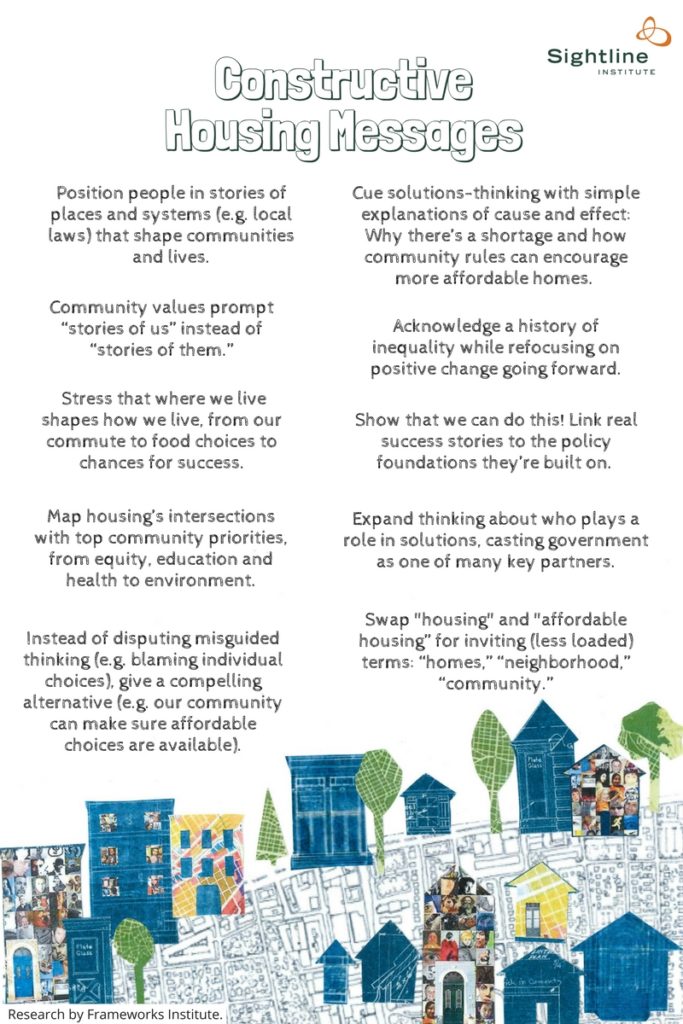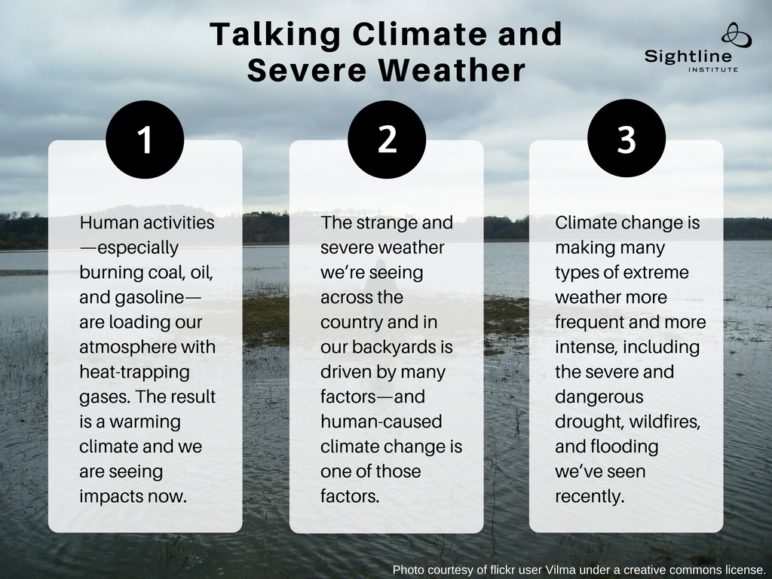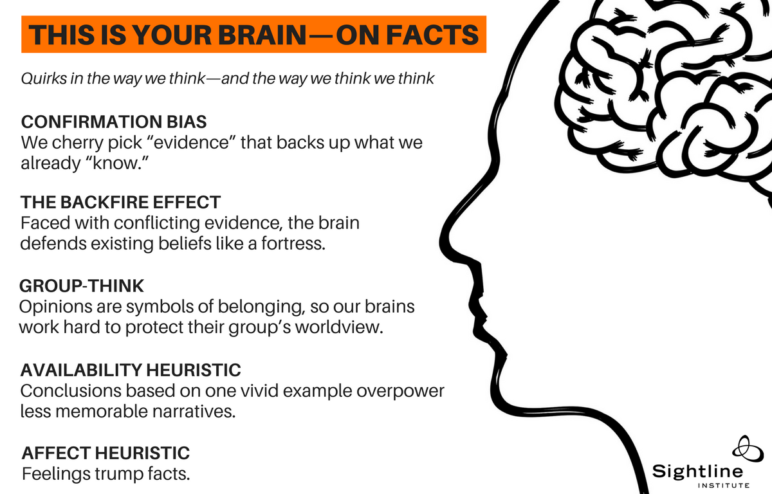At Sightline, we know that no matter how the data stack up, a smart policy solution is only as persuasive as our ability to convey why it matters. Words matter!
We help you find the words—and stories, images, and values messages—to go with your solutions. We dig through piles of academic research, polling data, and expert analysis to distill best strategic communications practices into short, accessible tools.
Here are some of our favorite messaging resources from the past year—a Flashcards flashback. Thank you for putting our messaging tools to work for good in 2017!
1. A Blueprint for Better Housing Messages
More than just a home; the place we live shapes how we live. Where we live maps our lives: where we go to school, where we shop for groceries, how we get to work, the air we breathe, and even our pathways to success over a lifetime. But when it comes to messages that build public support for affordability solutions, most housing policy advocates are still in design phase. So, how do we construct stronger foundations? FrameWorks Institute found six common ways housing messages can backfire and ten constructive reframes. Check it out here.

2. In Hurricane Harvey’s Path, How to Talk about Climate and Weather
The tragic hurricanes and wildfires this summer prompted productive dialogue about the seriousness of climate impacts and the urgency for solutions. Here’s our guide for talking about the climate and weather connection in an accurate and forceful way.
Start with the basics. Do not lead with what’s unknown. Is climate change happening? Is it caused by humans? Does it play a role in our weather? Yes, yes, and yes. People need to hear this. People also need to hear clear, honest statements about climate’s role in our weather.

3. How to Serve Up A Values Sandwich
We often assume that a smart policy idea or important research findings carry their own emotional weight. But that’s not usually how it works. Humans are emotional creatures. Whether we know it or not, we tend to trust our feelings, established worldview, values systems, and social cues more than facts or data.
Here’s a simple recipe you can use whether you’re giving a speech, writing an email, or training others to talk about your idea.
The sandwich reminds us to say out loud why we care and how we feel to invite others to care and to feel too. To see how it works, watch our short explainer video below:
Original Sightline Institute graphic, available under our free use policy.
4. A Climate Narrative for Hearts and Minds—Now in Spanish
It’s never been more important to bring people together and inspire broader and deeper engagement to hold the fossil fuel industry accountable to our communities and to accelerate our transition to clean energy. The Climate Narrative’s threat-villain-solution framework, with a focus on moral responsibility to our children and aspirational, local community empowerment through efficiency and energy solutions, is a powerful resource for policymakers, media, and activists across Cascadia and beyond. To help further engage with Latino communities in the United States, Climate Narrative now has its climate messaging resources available in Spanish. Watch the video below and read the full article here.
5. This is Your Brain—on Facts
Unconscious mental shortcuts, ingrained social survival impulses, and evolutionary glitches complicate how we evaluate new information, form opinions, gauge risk, or change our minds. As we humans seem to careen toward an epistemological precipice sped along by intense partisanship, it’s worth reviewing some of the most powerful tricks our own brains play on us. Here are the quirks in the way we think—and the way we think we think.

[list_signup_button button_text=”Like what you|apos;re reading? Get our latest messaging resources here.” form_title=”Flashcards” selected_lists='{“Sightline Flashcards”:”Sightline Flashcards”}’ align=”center”]
See also:
Our tip sheet from extensive message research by one of our favorite housing affordability partners, Yesler Community Collaborative, Dear Seattle: Let’s Own Our Growth.
And research-based messaging strategies from the Fuse Washington Communications Hub and All In For Washington on productive to talk about taxes and revenue.

